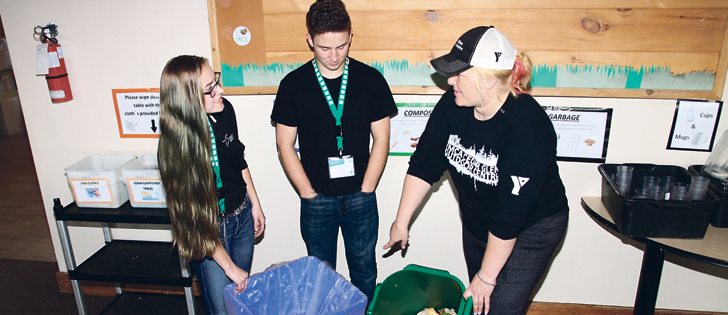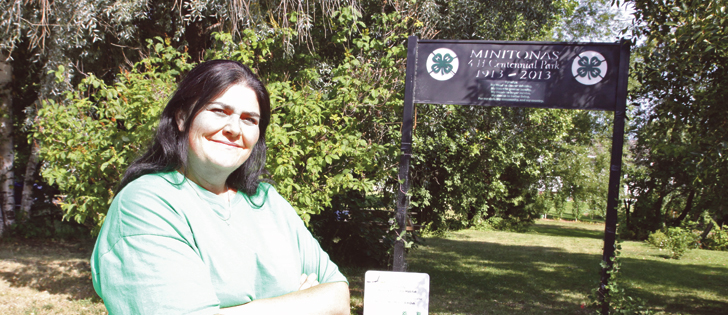NOBLETON, Ont. — Tonnes of food are discarded every year in Canada at a time when hunger is a global concern.
Jewel Mazur, a farm production extension specialist with Manitoba Agriculture, said an increasing world population will need 70 percent more food to feed itself by 2050, yet 60 percent of vegetables grown in her province end up unused.
Speaking at the National 4-H Members Forum near Nobleton, she said reasons range from spoiling to imperfections or blemishes to not meeting industry standards.
In African countries, the problems include poor roads, lack of refrigeration and climate.
Read Also

Fuel rebate rule change will affect taxes and AgriStability
The federal government recently announced updates to the fuel rebates that farmers have been receiving since 2019-20.
The United Nations’ Food and Agriculture Organization estimates that one-third of food produced in the world is lost or wasted along the supply chain.
Mazur cited an entrepreneur’s work in Portage La Prairie, Man., to reduce food waste in Canada by diverting millions of vegetables bound for the landfill. She uses an innovative steam fusion technology to process the “ugly vegetables” and packages them into shelf stable pouches that will last for two years at room temperature.
“She thought of another way to deal with food that is discarded,” Mazor said. “It’s one way to help relieve food waste.”
Food in Winnipeg accounts for 28 percent of residential waste, she added.
Mazur said a family of four wastes 320 kilograms of food a year with fresh vegetables at the top of the list.
“That’s a lot of food,” she said.
In Portugal, an “ugly food store” sells produce that doesn’t meet the grade for sales in traditional grocery stores.
Mazur said food is discarded because of improper packaging, overly large portion sizes, safety concerns and over-purchasing by grocers to keep shelves stocked, but it’s often because of how it looks.
“Stores find it more profitable to dump apples and put in fresh ones,” said Mazur.
Farmers might plow under fields of carrots rather than sell them for a loss when the market is saturated.
“They don’t want to flood the market and take a lower price,” she said.
Mazur said fresh produce waste is particularly concerning at a time when youth obesity rates are climbing, caused in part by poor diets and eating habits.
She quoted a 2006 report that found that the rate of obesity in children between 12 and 17 tripled over the past three decades in Canada.
She also cited the environmental concerns from food waste.
“When you’re wasting food, you’re wasting the fuel, labour and chemicals that all went into producing it,” said Mazur.
She also said food buried in landfills does not have air to allow it to compost, so it creates methane, a greenhouse gas.
There are no penalties for such waste, said Mazur.
“In France, supermarkets will be fined if they don’t donate waste food.”
She said change in attitudes and actions is possible through improved education around food production and waste and global food security.
“There is so much over-production, and it can’t get to places that need it,” said Mazur.
She said fewer people grow gardens today because of busy lifestyles and lost skills in preserving produce, so most must shop for such products.
The price of food will go up as more prime agricultural land becomes housing developments, she added, and there may be an appetite for cheaper imperfect produce.
Mia Wishlow of the Kelowna 4-H Hoof Beats Club sees the waste in her work in food services, noting how food is prepared just for display and then thrown out each night.
“If you add up what is displayed each day per store for the country, the numbers become so big, it’s ridiculous,” she said.
Wishlow said best before dates don’t mean food is spoiled; just that’s it’s at the end of its period of peak freshness.
Portion size also contributes to food waste.
“Serve meals in smaller portions or take the other half home,” she said.
Wishlow said waste is commonplace in Canada.
“In the Third World, they would use food until they couldn’t physically eat it.”
She said food service vendors can play an important environmental leadership role by using bins in their shops to encourage recycling and composting.
4-H members at the forum discovered how their conference venue, the YMCA Cedar Glen, does its part to reduce food waste. It incorporates vegetables from its gardens into meals, composts food waste and returns it to those same gardens. Imperfect produce is shredded or chopped.
- Eveline Juce of Manitoba (environment and healthy living)
- Jessica Mayes of Manitoba (sustainable agriculture and food security
- Erinn Jones of Alberta (science and technology)















